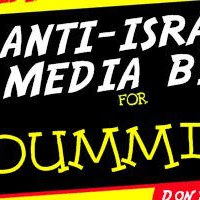![]()
Fri, May 27, 2011 | Rubin Reports | By Barry Rubin
Arab World: Onward to Revolutionary Violence Or Let’s Be Cautious?
MEMRI has translated several Arab reactions to the “Nakba Day” marches on Israel’s border. In general, they said that this is the end of Israel — a line that they’ve been pursuing now for 63 years without much to show for it. Yet the appeal of this view has not notably diminished.
All the quotes in this article are taken from here.
The Palestinian Authority (PA) reaction is important because it shows once again — contrary to the claims of virtually all of the Western mass media and leaders — that this institution is totally uninterested in making peace with Israel. The article was written by Adli Sadeq who is an official of the PA Foreign Ministry.
He writes:
“The revolutions in the Arab world — those that have [already] triumphed and those that are still underway — have put an end to bartering and haggling over the right of return.”
In other words, because a few hundred demonstrators can approach Israel’s border and get shot, that means the PA should eternally demand that all Palestinians who so wish can go live in Israel (where they can assault that country from within). But given this position, there can never be any negotiated peace and won’t in reality be a Palestinian state.
So who’s intransigent? Israel is not going to agree to its own destruction and is strong enough so that it doesn’t have to do so. Forget about the peace process. Nothing is going to happen and that’s because the Palestinian leadership isn’t ready for peace. And that’s because they think they will win a total victory without compromise. If you don’t understand that, you understand nothing about the Middle East.
Hamas, which is now the PA’s partner, in the form of Deputy Speaker of the Palestinian Legislative Council, Ahmad Baher, said that the demonstrations indicate there will soon be a third intifada that will destroy Israel. More violence, more death, the destruction of all the PA infrastructure and higher living standards achieved over the last year. All of this will be sacrificed for the mirage of total victory.
Were there more sophisticated responses? Yes.
The Jordanian government newspapers did not praise the protests. The rulers remember how Jordan was dragged into the 1967 war, and then used as a base for Fatah to attack Israel with terrorism. That regime has few illusions about risking its stability and sovereignty by hosting new cross-border attacks or marches. But it also allowed op-eds calling for and predicting Israel’s destruction.
While the monarchy virtually views Israel as an ally on some levels, it also must voice enough radical demagoguery to survive and buy off public opinion. Jordan doesn’t so much use Israel as a scapegoat for profit as it does for survival. In other words, it lets people scream that Israel is about to be destroyed but knows that isn’t true and doesn’t want to be carried away on that destructive bandwagon.
Then there’s al-Sharq al-Awsat, the Arab world’s best newspaper, which is Saudi owned but also relatively liberal. Its editor, Tariq Alhomayed, blamed Syria for the demonstrations:
“Damascus is ready to sacrifice every last Palestinian in order to…distract the world from its barbaric suppression of the peaceful protests on its own soil….”
Finally, there’s an intriguing editorial in al-Ahram, Egypt’s leading newspaper that shows at least some people there are getting scared that they will soon have a radical regime that will drag them into another disastrous war. Although perhaps they are just holdovers from the old regime who will soon be replaced by those with the proper revolutionary ideology.
The editorial says the demonstrations will hurt the Palestinian cause and Egyptian interests.
This is going to be the pragmatic argument in Egypt in the years to come. The question is whether it can overcome radical fervor. The radical nationalists might heed these arguments; army officers are more likely to do so, Islamists deaf to them.
The editorial asks:
“Is it in the national interest to provoke Israel at present, and to open up new fronts [of conflict]? Is this really the right time? Second, everyone knows that security within Egypt has not been fully restored, and that the government is making an effort to provide safety in the streets, cities, and squares by reorganizing the police force. Is it wise to diffuse the efforts of the security forces by [sending them] to additional areas? Isn’t our current situation enough [for them to handle]? Third, what can these marches toward the border achieve? Does anyone imagine, for example, that we are capable of fighting Israel? Have we considered what the Israeli response [might be] to such mass [demonstrations]?….Fervor, outbursts of emotion…are necessary at times, but it is always necessary for wisdom to prevail. Perhaps we should think a little [before acting].”
This is the kind of approach Westerners would expect: Our country is a wreck, the economy is drowning. Do we really want to engage in a foreign conflict now? Makes sense. But extremist masses and leaders in the Arabic-speaking world have frequently ignored such appeals to reason because of their ideology and their desire to gain or hold onto power.
And you know what? The Arab Spring hasn’t changed that. If anything, it is intensifying the syndrome. Why? Because the old state-sponsorship is being replaced by a truly popular, grassroots revival.



 RSS
RSS











#Arab World: Onward to Revolutionary Violence Or Let’s Be Cautious? | #Israel #Islamism http://j.mp/kUdB3j
#Arab World: Onward to Revolutionary Violence Or Let’s Be Cautious? | #Israel #Islamism http://j.mp/kUdB3j